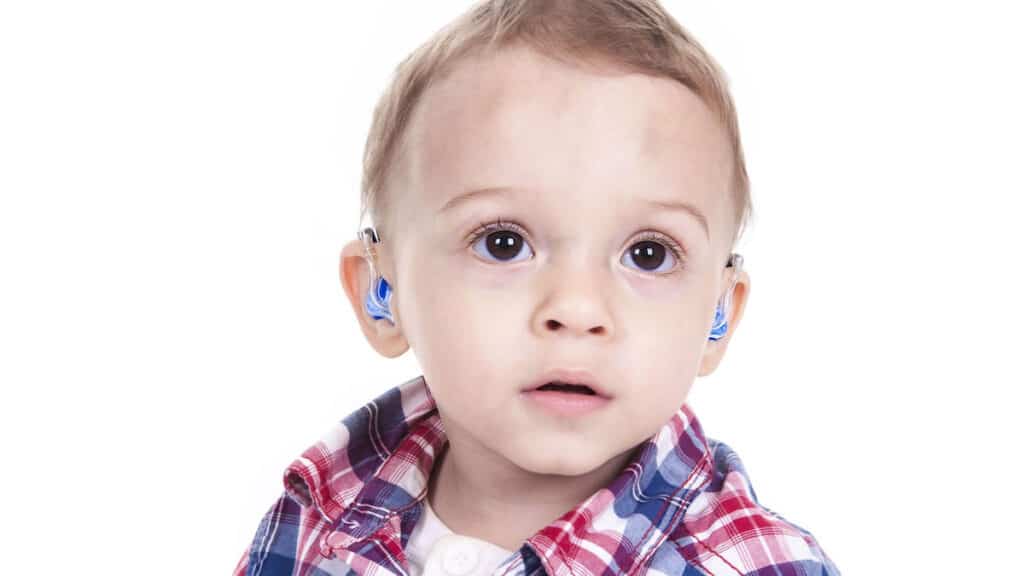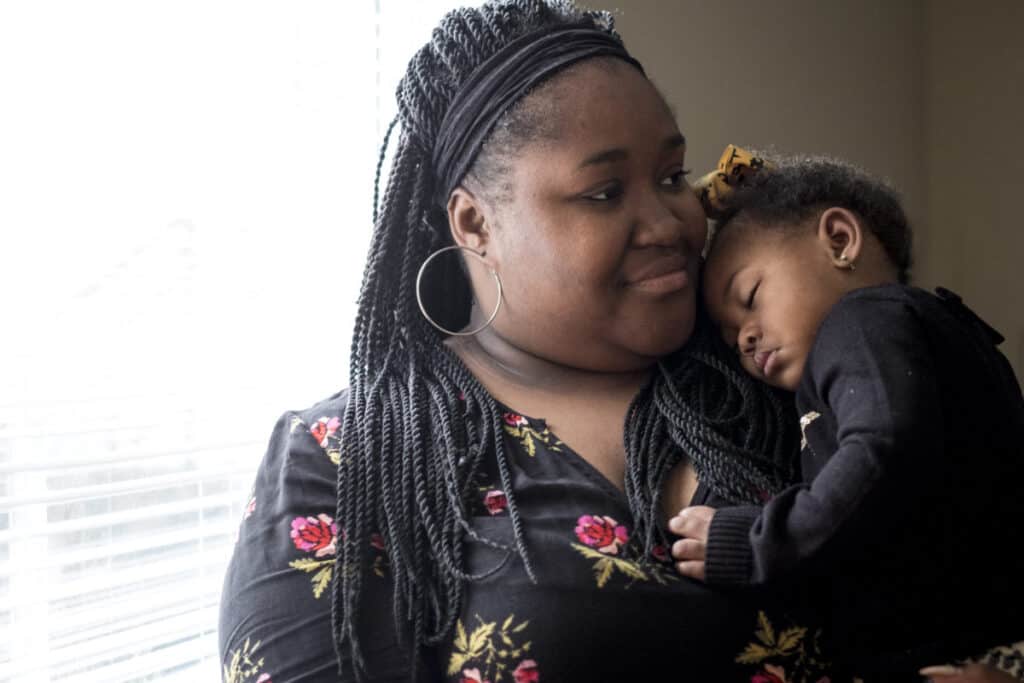If you’re concerned about your baby or young child’s development, Early Intervention can help. Early Intervention (EI) is a program that offers services to infants and toddlers (up to age 3) who need help with their development. Here we outline your Early Intervention first steps to get your baby or toddler the support they need.
EI may have a different name in your state, like EarlySteps in Louisiana. (Learn more about EI and how it can help your child).
Step 1: Intake
When your child is referred to Early Intervention, your first step will be to do an intake (sometimes called a Family Assessment) with your EI program. (How can I get my child referred to Early Intervention?)
Here’s what to expect:
- Your EI program will schedule the intake. Usually they will come to your house, but they can also meet you somewhere else, like a grandparent’s house or your child’s daycare center
- You will meet with an Intake Coordinator. This is the person who will help you through the beginning of the process. They’ll tell you about EI and get to know a bit about your child and your family
- They’ll ask some questions to get a sense of your child’s development. Then they’ll help plan a more detailed evaluation if one is needed. You’ll sign a form if you agree for your child to have the evaluation
- You will describe your child, your family, and your concerns. You can ask any questions you have.
- If you agree to have the evaluation, the Coordinator will give you a form to sign.
Step 2: Developmental Evaluation
This evaluation will help decide if your child qualifies for services.
Your Intake Coordinator will work with you to schedule this. It can be at your home or somewhere else where your child spends time and feels comfortable, like their daycare center or grandparent’s house.
They will assess different parts of your child’s development. This includes skills for language, movement, learning, and social behavior.
Make sure to speak up about any concerns you have about your child. For example, do they:
- Not seem to respond or interact with you in a typical way?
- Get very upset at small things, or rarely smile?
- Struggle with sensory input like loud noises or the feel of clothing?
- Make unusual motions with their hands or body?
If the evaluation doesn’t test for something that you are concerned about, make sure to tell the evaluator about it.
Step 3: Get evaluation results and attend an eligibility meeting
You will get the results of your child’s evaluation in the mail. The form is called the Written Notice of Eligibility.
Your intake coordinator will set up a meeting to talk about the evaluation results, even if your child does not qualify for services. The evaluator will be there. You can bring a friend or family member to support you if you would like.
If your child qualifies for services:
- You will talk about the services they think your child needs based on the evaluation
- You will be assigned or get to choose a Service Coordinator (sometimes called a Family Support Coordinator). This will be the person who will help you with everything from now on
- You will schedule an IFSP meeting to create the Individualized Family Service Plan (IFSP)
- Sometimes, the eligibility and IFSP meetings will be at the same time. This may happen if it was very clear at intake that your child would qualify
Step 4: Develop the Individualized Family Service Plan (IFSP)
The IFSP is a document that says what services your child and your family will get. It reflects your concerns and goals for your child. You will meet with your Service Coordinator, and maybe others, to create this together.
What you should know about the IFSP:
- Your Service Coordinator will fill out the form, but it can change based on the meeting
- It will include your concerns and goals, the services your child will get, and the steps you and your child will take to reach those goals
- It is very flexible! You and the team will review it at least every year and make changes as needed. But you can ask to review it and make changes anytime you want
- It is a legal document, so there are rules about timelines, giving consent for changes, and providing the services it outlines
The IFSP will include:
- Child information and family contact information
- Family concerns, priorities, and resources
- Present levels of health and development
- Child & family outcomes and strategies
- Early Intervention services
- Transition plan (for when they turn 3)
- Assistive Technology devices and services
- Annual signature page
If you need transportation for the services offered, that will also be on the IFSP. Ask your Service Coordinator if you need it but it’s not included.
You must sign off to give consent to the services. If you don’t agree with the services offered, ask for another meeting before you sign the form.
Check out this sample completed IFSP form.
What services can Early Intervention provide for my child?
You and your Service Coordinator will decide which services your child and family need.
Here are some of the most common types of therapy and services:
- Developmental Therapy helps kids learn basic skills that they should have at their age
- Speech Therapy helps with communication skills at all levels. Even young babies can learn skills that will lead to talking and understanding. Also helps with swallowing, chewing, and other feeding skills
- Occupational Therapy (OT) helps with fine motor coordination–using hands and fingers to do things like hold onto things, push buttons, throw balls, etc. It can also be helpful for children who struggle with external stimulation like loud noise or uncomfortable clothing
- Physical Therapy (PT) helps with large muscle movements (gross motor coordination), like sitting, crawling, and walking
- Social work helps connect your family to other needed services like childcare, food, or housing. It can also help with emotional support or crisis management
- Mental health and family and marriage therapy helps with common mental health challenges like anxiety, depression, and strains on a parent relationship
Children with some specific disabilities may see other specialists to provide the support they need:
- Children who are visually impaired can work with Teachers of the Visually Impaired (TVI) to maximize their visual skills and enhance other senses or adapt to their environment. A TVI will also help families set up their homes in a way that is safe for a child with vision concerns.
- Deaf and hard of hearing children and their families can work with a Teacher of the Deaf, who can teach ways to communicate, including sign language and technology
- Autistic children can learn communication and relationship skills from a number of different providers. Families can get support in understanding and managing challenging behaviors
My child’s services are in place. How do I make sure my child and family get the support we need?
Once you have signed the IFSP, Early Intervention is required to start services within 30 days. Your schedule should be in the IFSP, but if you have questions, call your Service Coordinator.
Make sure you are getting all of the services that are included in the IFSP.
Once your services start, here’s what you can do:
- Play with your child often. Practice the skills that your service providers work on
- Notice any changes in your child and what kind of play they respond to best
- Speak up and ask questions. Your EI providers are there to help your whole family
Your Service Coordinator should review the IFSP with you every 3 months to check how things are going. (If they don’t call you about this review, call them!) You will get a re-evaluation after 1 year.
What if we need a change to our services?
It is your right to review the IFSP and ask for changes any time you need them, including if:
- It seems like the services are not enough for your child
- Your child’s skills have caught up with their peers
- Your child is struggling in new ways
- Your family has new challenges that you want to address
- Your family needs more help caring for your child
Your first step is to talk to your Service Coordinator. Ask them to look at the IFSP and consider adding the services you want. Explain why you think your child needs them.
If Early Intervention cannot offer the services you need, you can look for community-based therapists in your area who offer services like speech therapy, family support groups, respite care, or counseling. Ask your insurance provider if they pay for these services.
If you have a complaint about Early Intervention services
Your Early Intervention program will usually do everything they can to meet your needs, but if you have a complaint, there are things you can do.
Your rights and your child’s rights are protected by the IDEA law. The Department in your state which oversees Early Intervention is responsible for making sure your rights are upheld. (This is usually the Department of Health or the Department of Education.)
If you have a complaint, here’s what to do:
- Start by having a conversation about your concerns with your Service Coordinator or the Director of your EI program. They will try to resolve your concern or tell you who to contact
- If that doesn’t work, you can file your complaint with your local EI program
- Talk to your local PTIC (Parent Training and Information Center) for help. Each office should have a person from Early Intervention to help when you have a problem
The take-away
If your child has been referred to Early Intervention, your first steps are the most important. Great job supporting your child’s development. You’ve got this.



